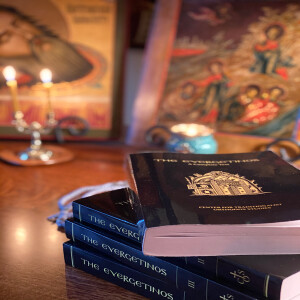
In these hypotheses, we have been reflecting upon the practice of asceticism, especially in light of the relationship between an Elder and his disciple; that is, in relationship to obedience. We are shown in these stories the ABC’s of the ascetic life and in particular that of the virtue of obedience.
What does it mean to let go of private judgment? What does it mean to set aside one’s will even in small things in our day-to-day life? How do we train the mind and the heart in this virtue; so that when we are asked to pick up our cross or when we are reduced to raw endurance and cannot see the road ahead of us, we are able to respond in love? We are shown in the stories that one must begin small. It is in letting go of our sensitivities in the small things, and allowing love to trump everything that this virtue takes root. It means being more attentive to the “other”, to what is asked of us and what people need, than to holding on to what we want, or what seems right or convenient to us.
There is part of us that shrinks back in a spirit of objection to what is being taught here. It seems unnatural to us. But what is really being asked of us or rather where we are being led to embrace is the supernatural. What we are being guided to is the perfect love and self emptying obedience that we see in Christ. We should have a similar desire to have obedience to God’s will as our very food. We must see it as something that sustains and nourishes us mystically.
Not fulfilling the will of God or choosing the path of sin should become something that is abhorrent to us. Such lessons can be learned only with humility. Beyond this, we are shown the incredible responsibility of those who are elders. Their actions, their requests and demands of their disciples must be rooted in the desire for their salvation, and for their good. They will be held accountable as shepherds.
---
Text of chat during the group:
More Episodes
 2024-08-26
2024-08-26
 508
508
 2024-08-21
2024-08-21
 565
565
 2024-08-19
2024-08-19
 495
495
 2024-08-14
2024-08-14
 625
625
 2024-08-12
2024-08-12
 517
517
 2024-07-29
2024-07-29
 656
656
 2024-07-22
2024-07-22
 602
602
 2024-07-09
2024-07-09
 691
691
 2024-07-09
2024-07-09
 498
498
 2024-06-24
2024-06-24
 848
848
 2024-06-17
2024-06-17
 632
632
 2024-06-12
2024-06-12
 557
557
Create your
podcast in
minutes
- Full-featured podcast site
- Unlimited storage and bandwidth
- Comprehensive podcast stats
- Distribute to Apple Podcasts, Spotify, and more
- Make money with your podcast
It is Free
- Privacy Policy
- Cookie Policy
- Terms of Use
- Consent Preferences
- Copyright © 2015-2024 Podbean.com




